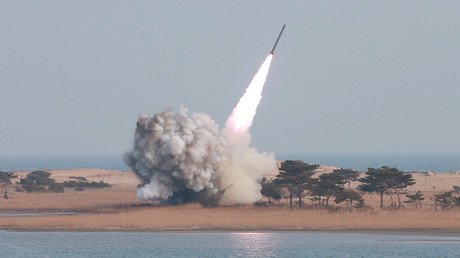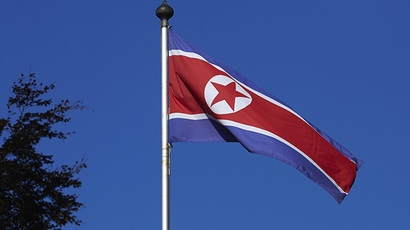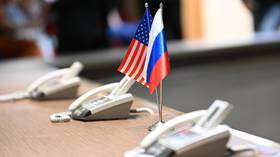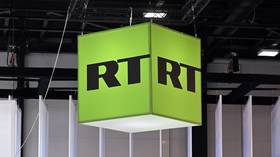S. Korea accuses North of hacking railway systems and officials’ phones

South Korea’s National Intelligence Service has accused Pyongyang of attempting to hack into railway control systems and wiretap officials’ smartphones as tensions continue to mount on the peninsula.
The National Intelligence Service (NIS) said in a press release on Tuesday that North Korean hackers penetrated the smartphones of dozens of senior South Korean officials, stealing text and voice messages, Yonhap news agency reported.
The intelligence service also claimed the North’s cyber-attacks targeted e-mails of South Korean railway workers in attempts to gain control over railroad control systems.
The NIS said it detected hacking attempts by the North against employees of two regional railway networks this year, but did not elaborate on the specific objectives of the attacks. It also added that the hacking attempts against the railway workers had been interrupted and their e-mail accounts closed.
"The move was a step to prepare for cyber terror against the railway transport control system," the agency said, as quoted by Reuters. As part of tightened safety measures, all subway lines in Seoul have stepped up their network security.
The intelligence service also warned that North Korea is “likelier than ever” to carry out more hacking attacks after the international community toughened sanctions last week.
According to accounts by defectors from the North, the secretive country is building up its cyber capabilities that enable it to disrupt or destroy computer systems controlling telecommunications and other utilities, Reuters reported.
Due to the North Korean government’s isolation policy, most online services for individuals and institutions are distributed through a free domestic-only intranet known as Kwanmyong. Access to the global internet is available only to a limited number of users, including the government and foreigners under special authorization.
North Korea has been repeatedly accused of hacking attempts against its southern neighbor as well as worldwide. In 2013, Seoul blamed Pyongyang for crippling cyber-attacks that froze the network systems of its banks and broadcasters for days.
In December 2014, North Korea was accused of a cyber-attack on Sony Pictures Entertainment. Notably, in late December of the same year, North Korea experienced technical difficulties with internet access, according to the New York Times. On December 22, it suffered a complete outage failure, resulting in the loss of internet access from outside the country, for which the US was suspected.
According to South Korea’s National Assembly Intelligence Committee, in August last year North Korean operatives also attempted to hack the smartphones of some 1,000 "important figures," Chosub Ilbo newspaper reported.
South Korea has been on high alert since the North conducted a nuclear test in January and a satellite launch in February, seen by many in the West as a trial launch of a new long-range ballistic missile. Both moves triggered new UN sanctions as well as intensive US-South Korean military drills.
On Monday, some 15,000 American troops and 300,000 South Korean personnel commenced an annual drill aimed at testing their readiness to counter what the two countries call a North Korean threat.
The Russian Foreign Ministry called the US-South Korean war games “unprecedented in its scale and the number and types of weaponry being employed,” urging the two nations not to put excessive military pressure on the North, which could result in Pyongyang having “rational concerns for its security.”
Earlier on Tuesday, Seoul it will introduce a new set of sanctions against 40 individuals and 30 entities suspected of links to North Korea's weapons program, Reuters reported. The individuals subject to financial sanctions reportedly include a Singaporean and a Taiwanese national. Seoul will ban vessels that have stopped at North Korean ports in the past 180 days. The new measures are aimed at discouraging shipping and trading companies from doing business with the North.
Seoul will also cancel participation in a pilot project that brought Russian coal to South Korea through the North Korean port of Rajin, a Foreign Ministry official told reporters in a joint briefing with other government agencies.














